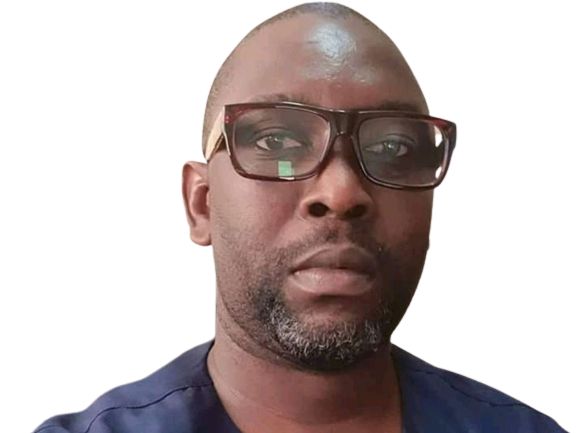By Hassan Osman Kargbo
In a significant move to tackle the escalating climate crisis, ActionAid Sierra Leone (AASL) participated in a seminar organized by the Environment Protection Agency (EPA) focused on Civil Society Organizations (CSOs) engagement in climate resilience.
The seminar, which aimed to address the growing impact of climate change on vulnerable populations, provided a platform for experts and community leaders to discuss strategies for effective climate action.
ActionAid-Sierra Leone, a key player in advocating for climate justice, used the seminar to highlight its continued efforts to support disaster-affected communities and promote climate resilience across the country. The organization emphasized the importance of incorporating gender-sensitive and community-led approaches in humanitarian efforts to ensure the inclusion of marginalized groups, particularly women, in climate adaptation and resilience-building initiatives
During the seminar, Mohammed Fofanah, the Head of Programme and Policy at ActionAid Sierra Leone, shared insights on the organization’s dedication to climate justice. He highlighted the growing need for a robust understanding of international climate agreements and the responsibility of CSOs to engage with government entities in their implementation.
“For CSOs, we have the responsibility to first understand what these agreements are at the international level before we can engage with the government. Additionally, our responsibility is to be an active part of the process, interrogating the context and bringing the realities from the international level into our local context,” Fofanah said during his address.
He stressed that once CSOs have a firm understanding of these agreements, they must strategically position themselves in the implementation of climate adaptation projects to ensure that they are not only aligned with international standards but also responsive to local needs.
Fofanah’s message resonated with the audience, reinforcing the idea that local communities must be at the heart of climate action efforts. He pointed out that the success of climate adaptation projects depends on the active engagement of affected communities in decision-making processes.
The seminar saw passionate discussions around the need for stronger partnerships between CSOs and government agencies. Panellists, including environmental experts and community leaders, emphasized the necessity of collaboration to drive effective climate adaptation initiatives.
One of the central debates revolved around ensuring that affected communities play an active role in crafting response strategies to climate change. Panellists agreed that while governments and CSOs can provide valuable resources and expertise, the most effective climate action plans are those that reflect the realities, needs, and voices of local communities.
“The participation of affected communities in decision-making is not just an option but a necessity,” said one of the panellists. “Community involvement ensures that solutions are not only relevant but sustainable. Communities must not just be recipients of aid but key players in shaping how adaptation strategies are designed and implemented.”
The discussion also touched upon the critical role of gender in climate action. AASL has long advocated for the inclusion of gender-sensitive approaches in all aspects of humanitarian efforts, arguing that women, who are often the most vulnerable to climate-related disasters, must be at the forefront of climate adaptation planning. Gender-responsive strategies, according to AASL, will ensure that women are empowered to lead in the fight against climate change, particularly in areas such as water management, agriculture, and disaster preparedness.
Another significant topic of conversation during the seminar was the need to prioritize vulnerable populations when designing and implementing climate resilience initiatives. The impacts of climate change, including rising sea levels, more frequent floods, and prolonged droughts, disproportionately affect marginalized groups such as rural farmers, women, children, and those living in poverty. The seminar participants underscored that these populations should be prioritized in any climate response efforts, with policies and strategies tailored to their unique needs and circumstances.
The EPA seminar concluded with a strong call to action for all stakeholders, including the government, CSOs, and local communities, to collaborate more effectively in the fight against climate change. Attendees agreed that while the challenges posed by climate change are vast, coordinated efforts can make a significant difference in enhancing the resilience of vulnerable populations and ensuring sustainable development for all.
As the seminar wrapped up, ActionAid Sierra Leone reaffirmed its commitment to working alongside communities and partners to strengthen climate resilience and advocate for policies that address the most pressing needs of Sierra Leone’s most vulnerable citizens. The organization’s ongoing work continues to highlight the importance of a multi-faceted, inclusive approach to climate action that is grounded in community leadership and gender equality.












